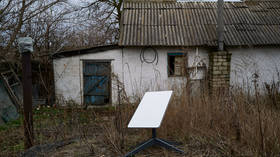Germans reveal fears for financial survival in poll

Half of Germans asked in a survey have said they’re afraid they might not have enough money to financially survive the coming winter, a poll commissioned by the tabloid Bild revealed on Sunday. Most people also believe the government’s relief measures to alleviate the fallout of the ongoing energy crunch are not enough.
Only 36% of respondents believe that government measures will help them get by, according to the survey carried out by the INSA polling agency.
In late October, another INSA poll also showed that more than half of Germans believed that Chancellor Olaf Scholz was not up to the challenges the nation was facing.
Around one third of Germans (31%) admitted they would not be able to afford any Christmas presents for their loved ones this season due to a lack of money, INSA added. Over a quarter of Germans (28%) said they would not be able to continue paying their energy bills in the coming months. One in five people also fear for their jobs amid the continued energy crisis.
The findings come at a time when Germany is grappling with an energy shortage, partly caused by the EU’s drive to give up importing Russian energy, in response to Moscow’s military operation in Ukraine. The crisis has driven up oil and gas prices, sparking fears of a potentially “chilling winter” across Germany.
In October, Berlin unveiled a $200-billion plan to support industries as well as households through the winter. The plan in particular involves subsidizing a certain amount of energy consumption by households and by companies to limit the impact of the high gas prices, and the setting of energy price caps. The exact volume of energy consumption to be subsidized has not been revealed yet.
German authorities also have other measures in place to get through the winter. Citizens were previously urged to limit their energy consumption by lowering their heating temperatures and by showering less. Some German cities also announced creating public “warm-up” spaces for those unable to afford their energy bills in particular.














